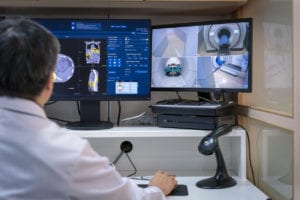
With the advancement of diagnostic technology, pinpointing diseases and injuries accurately is easier than ever. Revolutionary among these technologies is magnetic resonance imaging, or MRI.
MRI is a non-invasive and painless procedure used to create a detailed structure of your organs, which lets doctors scan and detect anomalies in your body. There are different types of MRI scans used for specific conditions.
Here are five common scenarios that call for MRIs.
Functional MRI For Testing Brain Activity
If you have suffered from stroke or a brain disease, you may need to get a functional magnetic resonance imaging (fMRI) test. This detects small changes in your brain activity, including blood flow. Through an fMRI scan, your doctor will be able to map your brain, allowing them to examine your brain’s functional anatomy.
Functional MRI is primarily used to screen for abnormalities that other imaging methods cannot find. Doctors can also use the result of an fMRI as a guide for brain treatment.
MRI For Scanning The Heart
Doctors can also use magnetic resonance imaging to screen for heart problems. Using radio frequencies, an MRI can produce a detailed image of your cardiac muscles and blood vessels. Individuals who have hypertension, high blood cholesterol, and diabetes are advised to undergo MRI screening. Your doctor may also order echocardiograms and CT scans to further assess the heart’s function.
MRI For Scanning The Breast
An MRI can also be a part of breast cancer testing. Unlike mammography, MRI is more sensitive and can find invasive breast cancer sooner. However, your doctor may also order a needle biopsy to confirm your diagnosis.
Women who are overweight after menopause are usually advised to get this procedure, as they are at higher risk of getting breast cancer.
Magnetic Resonance Venography (MRV) and Magnetic Resonance Angiography (MRA)
Unlike other MRI procedures, magnetic resonance venography (MRV) uses a combination of magnetic radio frequencies and intravenous (IV) contrast dye. This dye, made of a rare earth metal, highlights your blood vessels and veins, giving your doctor a better image of the scanned area. This allows for more precise visualization of conditions causing vein problems. MRV is used primarily to determine deep thrombosis or blood clots in your veins.
Similarly, magnetic resonance angiography (MRA) uses contrast dye to visualize blood vessels. However, MRA is often used to examine soft tissues and assess blood flow. It is usually used to detect aneurysms in the aorta.
Non-contrast MRA
As the name suggests, a non-contrast MRA is an MRA without a contrast dye. Some patients, mostly those with kidney problems, are unable to process the dye safely. There are also some people reported to be allergic to it. Non-contrast MRA is mainly used to detect atherosclerotic disease or the block of blood flow in the arteries.
MRI And Other Diagnostic Services in Bronx, NY
Worrying about a health condition is a drain on your mental health, just as much as the actual health condition affects your physical body. To ease your mind and help you devise a treatment plan, consult with your doctor about getting a diagnosis.
At Starling Diagnostics, we believe that thorough diagnostics are key to managing your health. We proudly offer a personalized approach customized to your healthcare needs.
Our highly trained and board-certified staff can help you with your diagnostic needs.
If you are worried about your health, we encourage you to visit our medical office at 1480 East Avenue, The Bronx, NY. Let us help you achieve optimal health. Call our hotline at (718) 319-1610 or request an online appointment today.
